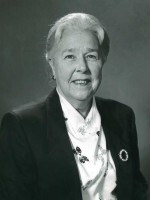Marjorie Jean Spurrier Sirridge M.D., 92, passed away peacefully in the presence of family at North Kansas City Hospital, on July 30, 2014. Cremation and private family services. Dr. Sirridge lived a highly satisfying and diverse life as a daughter, wife, mother, grandmother, friend, author, dedicated physician, teacher and mentor. The family suggests contributions to The Endowed Lectureship of Dr. Marjorie Sirridge at the Sirridge Office of Medical Humanities and Bioethics at the University of Missouri-Kansas City School of Medicine. Dr. Sirridge was born and raised in Kingman, Kansas, and felt that growing up in a small town provided a sense of personal freedom and helped her better understand and appreciate all kinds of people. Many of her strongest memories are linked to her life in the close knit community of her childhood years. As early as high school, Dr. Sirridge possessed a strong, natural interest in the study of science. She continued those studies at Kansas State University, graduating with a pre-medicine major at the age of 20. Medical school at the University of Kansas confirmed Dr. Sirridge's abilities in the sciences as she finished first in her class. Medical school led to another very important development: Marjorie Spurrier met her future husband, William Sirridge. In fact, the two were married by a special friend who was a hospital chaplain on the day before their graduation in 1944. From there, life became a little complicated because Dr. William had a residency at The Cleveland Clinic and Dr. Marjorie had an internship at Charity Hospital in New Orleans. Later, Dr. Marjorie also went to Cleveland to continue her training and start raising a family. The growing family moved back to Kansas City, Kansas, in late 1948 as Dr. William began his private practice and Dr. Marjorie found research opportunities at KU School of Medicine.
During the 1950s and 1960s, in addition to raising her family, Dr. Sirridge concentrated on her medical specialty of hematology. It was a rapidly changing and exciting time scientifically as researchers were trying to find effective methods for treating blood diseases and disorders such as leukemia, hemophilia, and various types of thrombosis and anemia. She consulted at the U.S. Veteran's Hospital in Wadsworth, conducted laboratory research, and treated private patients in Kansas City, Kansas. In 1967, she published her book Laboratory Evaluation of Hemostasis and Thrombosis (later updated in two subsequent editions). Life changed significantly in 1971 when both Dr. Sirridges decided to leave private medical practice and join the faculty of the newly established University of Missouri-Kansas City School of Medicine. It was a perfect fit for them because a key component of the school's new model of medical education involved early and continuous contact between students and a team of clinician teachers called docents. Dr. Sirridge embraced this approach because she always believed that the best patient care occurs when health professionals interact frequently. Time spent with colleagues and students on the "Red Unit" produced some of Dr. Sirridge's best memories from her teaching years. While working closely with all levels of students through the docent system, Dr. Sirridge served as assistant dean and chaired the medical school's council on curriculum. She was particularly proud of the fact that the UMKC School of Medicine often held one of the highest percentages of women medical students of any coeducational medical school on the country. Finally, in 1997, Dr. Sirridge became Dean of the UMKC School of Medicine and directed the school for two years. Dr. Sirridge entered the medical field during a time when there were few women doctors and it was not easy to balance a career and family. Consequently, she mentored and guided many younger women as they pursued that balance in their professional lives. Without question, Dr. Sirridge found great fulfillment in being a doctor. She enjoyed the personal relationships with patients as well as the careful search for the right diagnosis. In her field of hematology, she felt fortunate to have witnessed dramatic improvements in the treatment of blood diseases like childhood leukemia. Believing deeply that it is important for doctors to have a good background and appreciation for literature, art and culture, Dr. Sirridge, along with her husband, endowed the Office of Medical Humanities at the school in 1992. In this new role, she remained active in humanities programs and co-taught courses at UMKC until her retirement at age 90. Dr. Sirridge also loved the performing arts and was an active supporter of the Kansas City Lyric Opera, Kansas City Repertory Theatre and the Kansas City Ballet. Dr. Sirridge belonged to various national, state and local medical organizations and received numerous honors and awards over her career. She was a Master of the American College of Physicians and received the Renaissance Woman Award from the Foundation for the History of Women in Medicine. In 2011, the KU School of Medicine Women in Medicine and Science Organization established the annual Excellence in Medicine award in her honor. Dr. Sirridge also was a past president of the Metropolitan Medical Society of Greater Kansas City. Besides family and her profession, Dr Sirridge's other love was reading. Rarely was she without a newspaper, periodical, medical journal or an interesting book in her hands. She organized one of the first Great Books programs in the area in the 1960s, was a member of numerous book groups (two at the time of her passing) and taught various literature-based courses at the medical school and in the Spark program at UMKC.
Dr. Sirridge was preceded in death by her parents, Frank and Fannie Spurrier and her husband, William. She is survived by her brother - in-law Charles Sirridge of Tonganoxie, a daughter Dr. Mary Sirridge and her husband Dr. Eric Mack of Baton Rouge, Louisiana, a son Dr. Stephen Sirridge and his wife Linda of Lenexa, a son Patrick and his wife Christy of Leawood, a son Dr. Christopher Sirridge and his wife Lisa of Olathe. "Grandmother" Sirridge is also survived by eleven grandchildren: Joshua Mack, Dr. Rebekah Mack, Dr. Kate Sirridge, Nathaniel Sirridge, Kimberly Sirridge, Charlie Sirridge, Leigh Sirridge, Andy Sirridge, Jennifer Sirridge, Alex Sirridge and Grace Lewis. Hundreds of birthdays, holidays, and family gatherings were shared with them. Also surviving are numerous nieces and nephews. Dr. Sirridge spent many wonderful hours with her friends from the medical school, Bishop Spencer Place and cultural and book groups. The family thanks all of you for being such an important part of her life. A special note of appreciation is extended to Marilyn Pesto, Helen Gover, Nancy Cavanaugh, Dr. Judy Joss, Bette Freidberg, Mary McCamy and Dr. Judy Vogelsang. Many will recall Dr. Sirridge's fondness for the writings of Willa Cather. This was one of her favorite quotes: "What was any art but a mold to imprison for a moment the shining elusive element which is life itself- life hurrying past us and running away, too strong to stop, too sweet to lose." â Willa Cather.
Guestbook
Visits: 23
This site is protected by reCAPTCHA and the
Google Privacy Policy and Terms of Service apply.
Service map data © OpenStreetMap contributors





